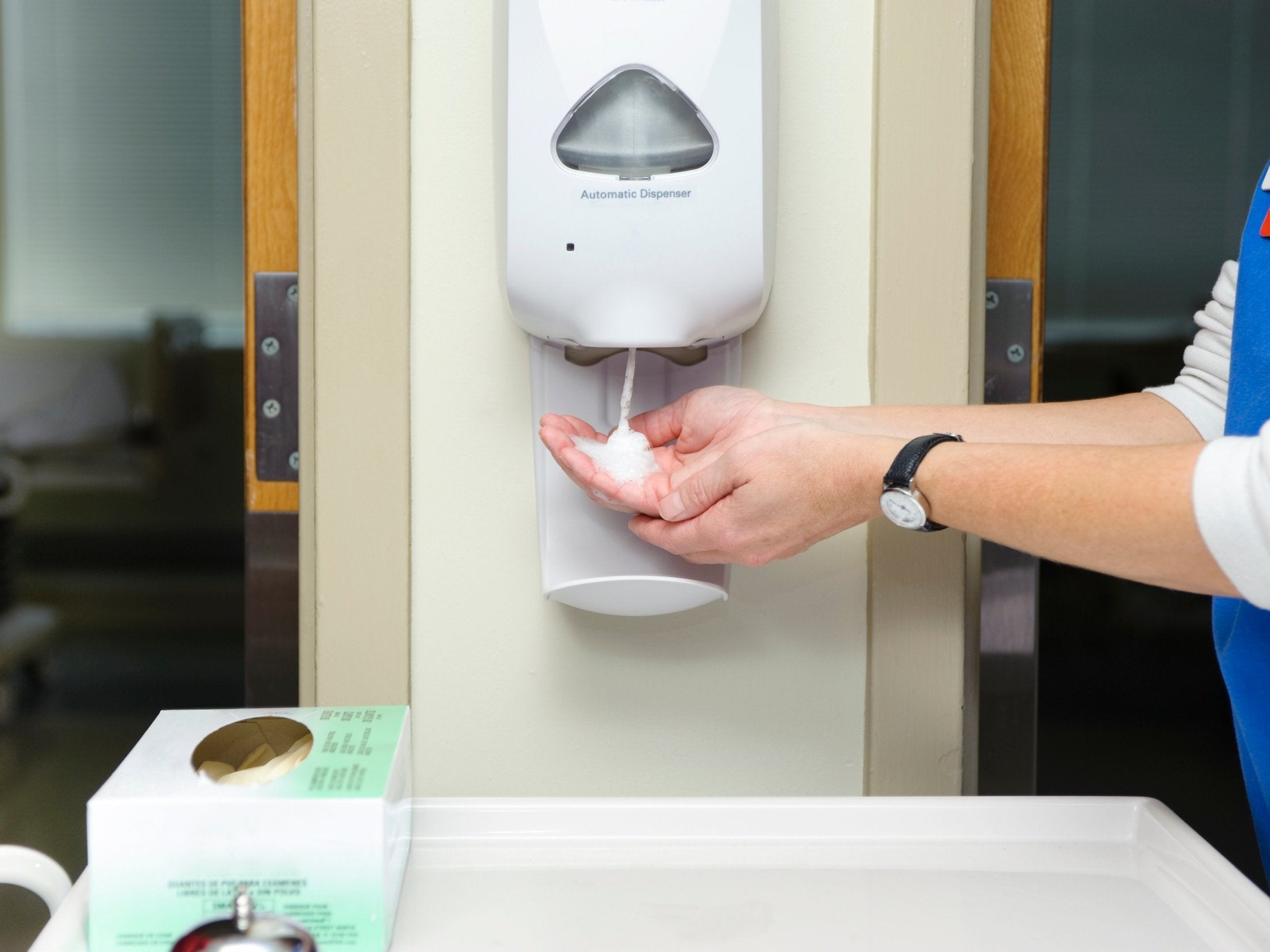Superbug warning as bacteria resist strong alcohol hand sanitisers, study finds
Alcohol disinfectants have been credited with preventing thousands of MRSA deaths but they are increasingly ineffective against some superbugs

Your support helps us to tell the story
From reproductive rights to climate change to Big Tech, The Independent is on the ground when the story is developing. Whether it's investigating the financials of Elon Musk's pro-Trump PAC or producing our latest documentary, 'The A Word', which shines a light on the American women fighting for reproductive rights, we know how important it is to parse out the facts from the messaging.
At such a critical moment in US history, we need reporters on the ground. Your donation allows us to keep sending journalists to speak to both sides of the story.
The Independent is trusted by Americans across the entire political spectrum. And unlike many other quality news outlets, we choose not to lock Americans out of our reporting and analysis with paywalls. We believe quality journalism should be available to everyone, paid for by those who can afford it.
Your support makes all the difference.Scientists have sounded an alarm in the fight against superbugs after finding evidence that bacteria are growing resistant to alcohol hand sanitisers integral to controlling infections.
Researchers made the worrying finding while investigating why some species of antibiotic-resistant bacteria in Australian hospitals have become a growing menace despite the widespread use of hand gel disinfectants.
They focused on a group gut bacteria known as the enterococci, which are a growing problem around the world as they are increasingly resistant to treatment with even last-resort antibiotics like the drug vancomycin.
Testing bacterial samples taken from Australian hospitals over a 19-year period, they found the bacteria are now much better at surviving in sterilised environments, and going on to cause infections.
If this trend continues hospitals may no longer be able to rely on these measures to prevent outbreaks from infecting older people and those too ill to fight off infection, the authors warned in a study published in the journal Science Translational Medicine on Wednesday.
Alcohol gel dispensers have been a mainstay in NHS hospitals and around the world since the mid-2000s when an international hand-washing initiative helped to slash rates of common superbugs like MRSA, which were causing thousands of deaths a year.
“All over the country MRSA rates were falling, that was great because patients were doing much better and the risk of serious infections was reduced,” said Professor Paul Johnson of the University of Melbourne, who helped lead the research.
“But we also noticed a gradual increase in vancomycin-resistant enterococci (VRE) infections, this seemed like a paradox because both infections should be controlled by standard hand hygiene.”
The enterococci are already the fifth biggest cause of sepsis in Europe and account for 10 per cent of hospital-acquired blood infections (bacteraemia) globally.
Additionally, vancomycin resistance is a major problem as it is one of the few antibiotics that can be used to treat bacteria with more complex cell walls – known as gram-positive – such as E coli and the enterococci. Bacteria can also share resistance genes between species and allowing one resistant species to spread could mean others become harder to treat.
The species studied by Professor Johnson’s team, E faecium, is one of the major causes of infection. It accounts for a third of the more than 7,000 enterococci blood stream infections in England, Wales and Northern Ireland in 2016, according to Public Health England data.
The researchers tested the disinfectant tolerance of E faecium by adding them to mouse cages which had been sterilised with commonly used alcohol solutions.
It found modern species continued to grow and were better able to colonise the guts of infected mice where they could cause infections and be passed on.
This could be down to the bacteria growing more resistant to alcohol gels because of their increasing use, or it could be because they have adapted to conditions in our bodies which coincidentally help them withstand disinfectant.
“In many of the major hospitals around the world VRE is going up, like in Australia,” said Professor Tim Stinear, a microbiologist and another of the study’s authors. “So we’re very keen to see whether the same patterns of alcohol tolerance are in other hospitals worldwide.”
Join our commenting forum
Join thought-provoking conversations, follow other Independent readers and see their replies
Comments